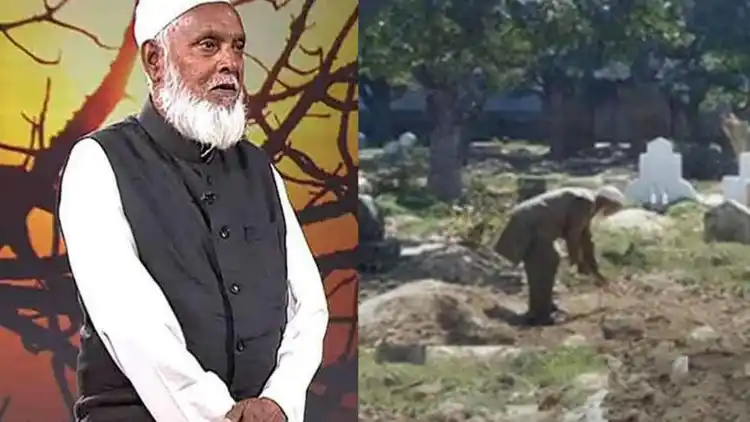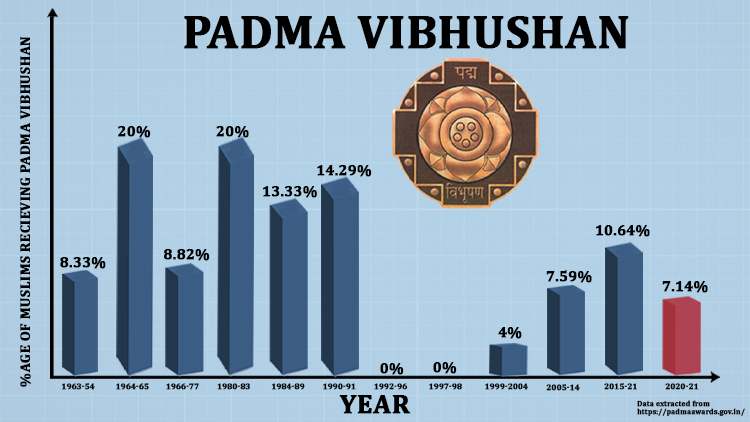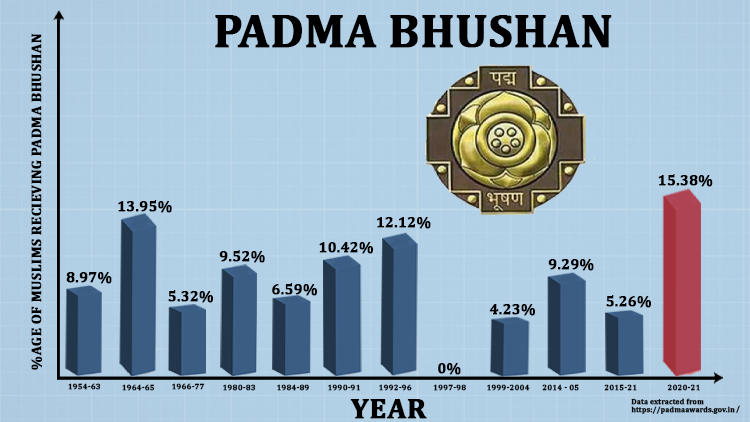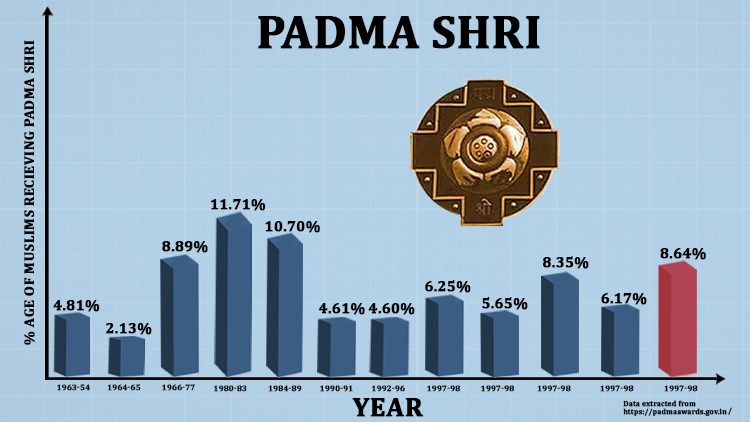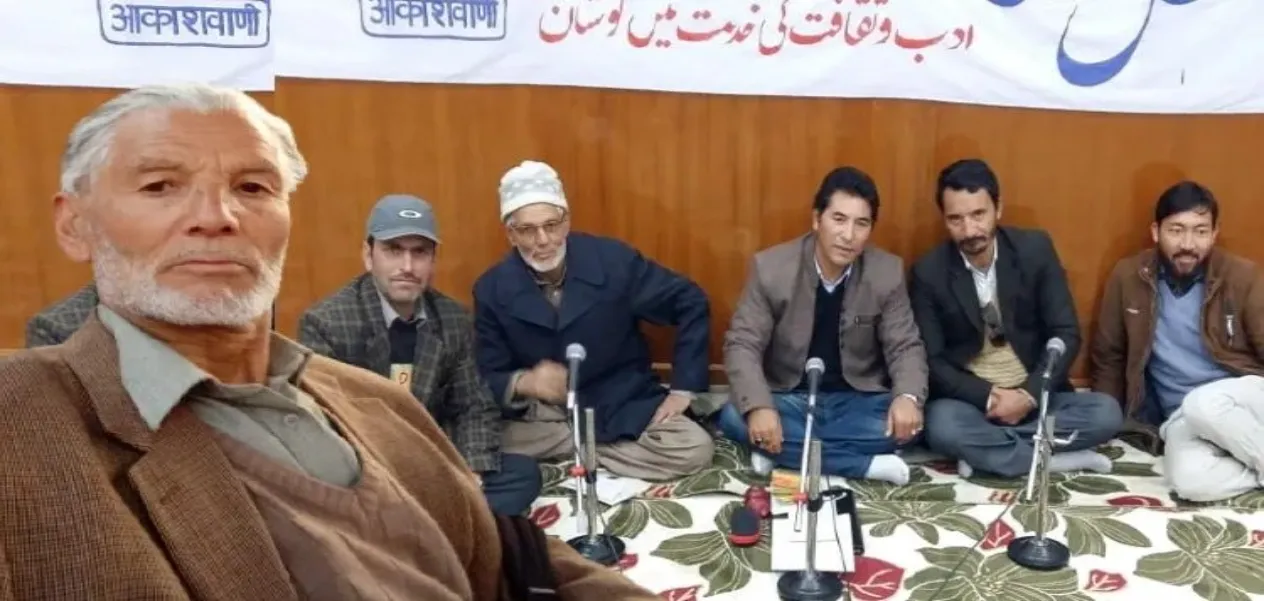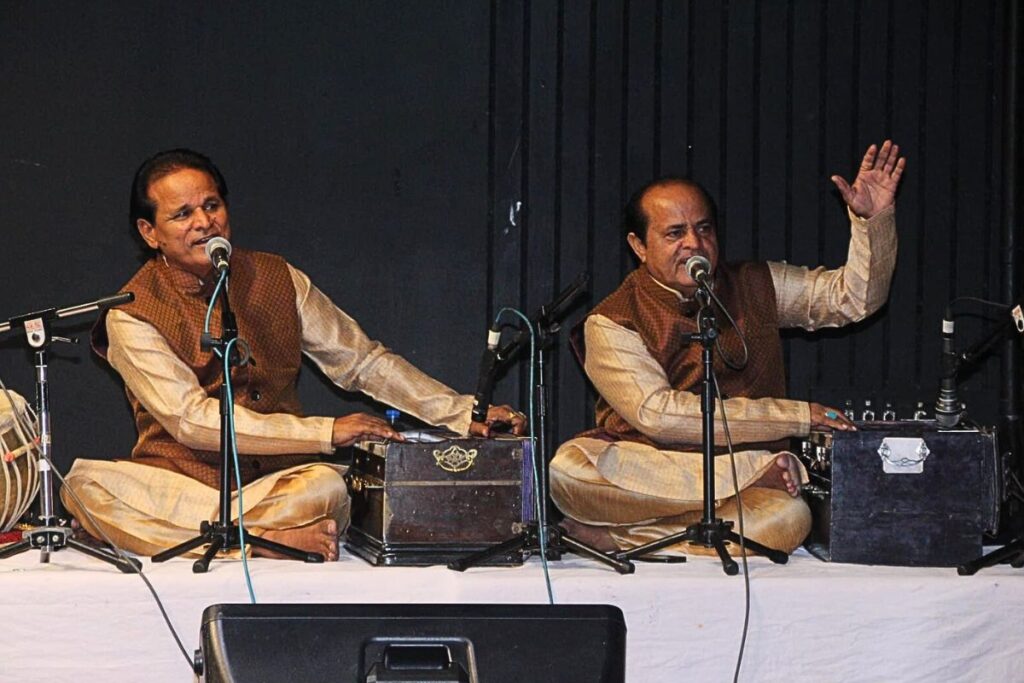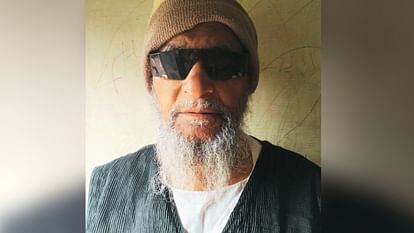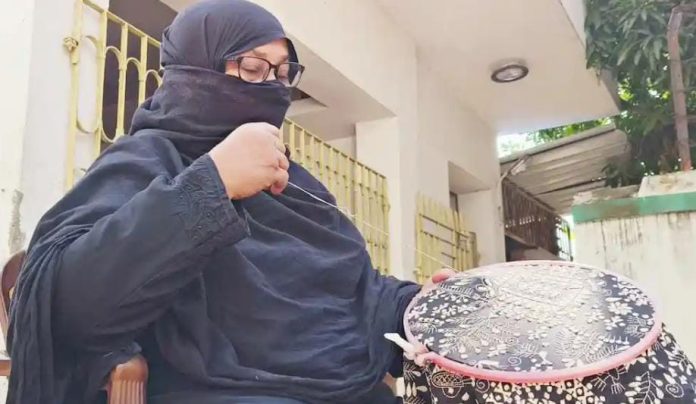Aurangabad /Mumbai, MAHARASHTRA:
It was December 2001. I was at Dr Rafiq Zakaria’s beautiful, book-lined study at Cuffe Parade house in South Mumbai. In that spacious room Allama Iqbal vied for space with William Wordsworth and Mirza Ghalib sat alongside Shakespeare. World religions and their prophets and pundits were there in plenty. So were heroes and heroines of India’s freedom struggle. Present also were a few villains amidst a pantheon of popular leaders. Muhammad Ali Jinnah could not have been absent. He was there too.
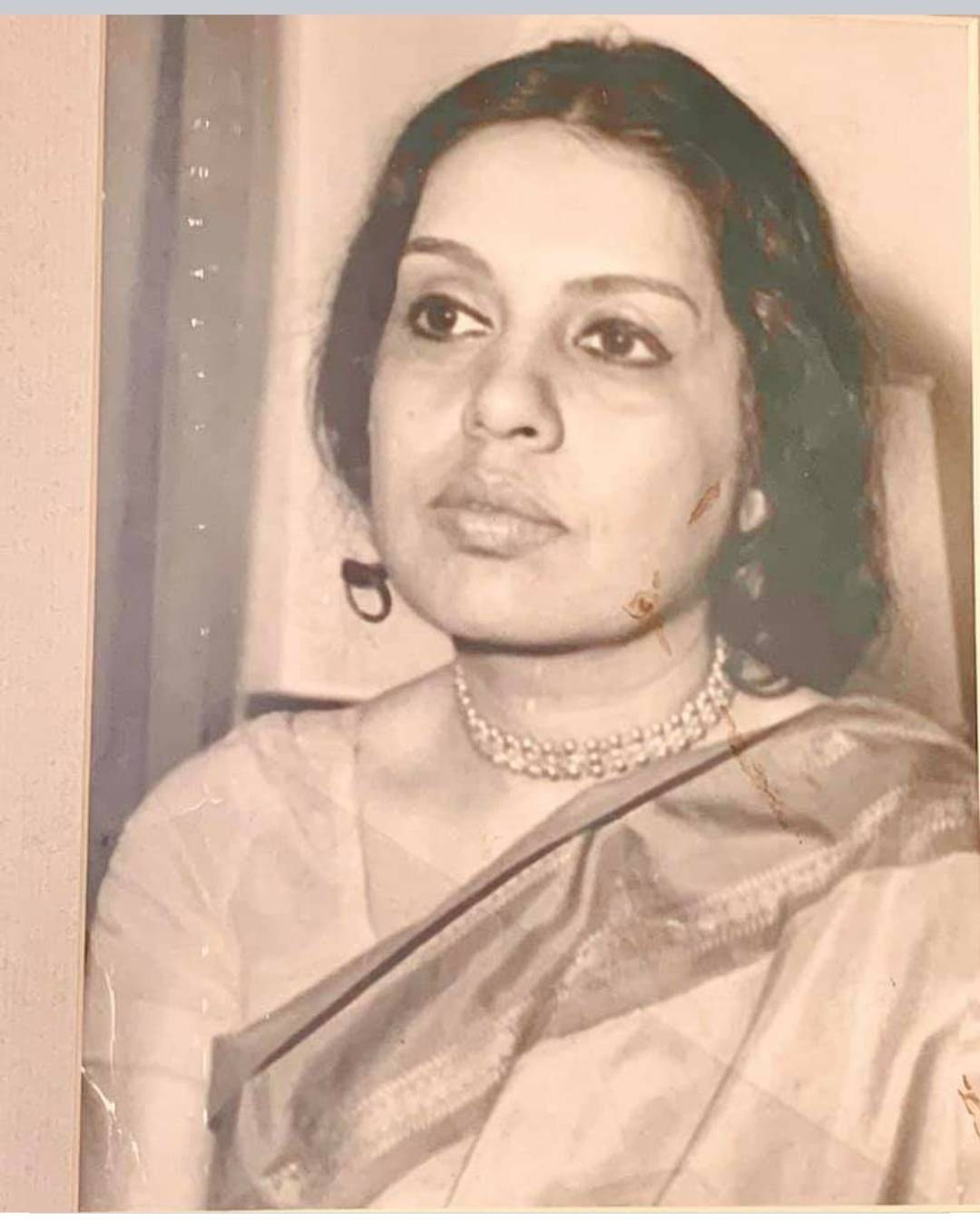
In fact, Jinnah those days was in the intellectual air on both sides of the Indo-Pak border. The Outlook magazine had sent Dr Rafiq Zakaria’s book on Jinnah ‘The Man Who Divided India’ to noted Pakistani journalist Najam Sethi for review and he had panned the book. In the review Sethi had also suggested that Dr Zakaria should have heeded advice of his wife Fatma Zakaria who had tried to stop him from wiring the book, suggesting, “I think you should leave Jinnah alone for a while.” Dr Zakaria had written a rejoinder to Sethi’s piece and explained that he could not help but write about a man responsible for not just dividing India but breaking the social cohesion of the subcontinent Muslims. First, Muslims were divided between two countries–India and Pakistan. Subsequently, a part of Pakistan broke away, leaving Muslims divided in India, Pakistan and Bangladesh. The blood-curdling riots that accompanied these divisions had left Dr Zakaria deeply disturbed and could not rest till he took the grief off his chest.
While he gave an interview to me for the ‘Indian Express” on why he wrote this book and the debate it had generated, he told his office staff that he would not entertain any telephone calls or visitors for the next one hour. Dr Zakaria was holding forth forcefully in the closed room when unexpectedly and suddenly the door opened and Fatma Zakaria, in yellow salwar-kameez clutching a page, breezed in. “The secretary is so terrified after you asked her not to disturb you that she pleaded with me to come. This needs your signature and has to be faxed urgently,” Fatma said, got the paper signed and left quickly.
The Zakarias, husband and wife, complimented each other. One half left in 2005. The better half departed yesterday. She was 85. Her famous son, US-based author and Television anchor Fareed Zakaria couldn’t have encapsulated his feelings in a tweet better than this: “My mother, Fatma Zakaria, passed away last night at 85. She lived a long, rich, eventful life, with children and grandchildren whom she adored. She loved this photograph.” The photograph that I use with this essay is the one Fareed Zakaria tweeted. She is survived by, apart from Fareed, her son Arshad Zakaria and step son Mansoor Zakaria and step daughter Tasneem Mehta Zakaria.
Life was never the same again in Mumbai after Dr Rafiq Zakaria had exited. Life at the beautiful educational campus Dr Rafiq Zakaria built in Aurangabad will never be the same again after Fatma Zakaria’s departure. After Dr Zakaria’s death in 2005, Fatma had stepped in to carry on the educational legacy her famous educationist, politician and Islamic scholar husband had left behind.
As you enter the green campus, a sense of gratitude for the Zakarias grips you. For years, Dr Zakaria and then his wife Fatma nursed this seat of learning, endowing it with institutions of repute. Most politicians use their constituencies to scale heights and abandon them once they leave politics and walk into sunset. Few remain clung to their constituencies till they die. Dr Rafiq Zakaria belonged to the second category. “He is the architect of modern Aurangabad and Mrs. Fatma Zakaria was a big pillar of support to him. I don’t think Dr Zakaria could have done so much in the fields of politics, education and scholarship without her,” says eminent Urdu scholar and linguist Prof Abdus Sattar Dalvi who have known the Zakarias for the last five decades. Prof Dalvi had also translated Dr Zakaria’s seminal work Iqbal: Poet and Politician in Urdu.
Fatma was Dr Zakaria’s first reader and critic too. With their children flown out of the nest and into the wider world where they planted victory flags on as varied fields as Investment Banking and Journalism, it was Fatma who provided the much-needed inputs as well as emotional support to Zakaria who heads so many institutions and i wrote so prolifically till his end.
Fatma had worked under legendary editor and ‘dream boss’ of every fledgling journalist, Khushwant Singh, and knew how to curb verbosity in a sentence and straighten a complex paragraph. In book after book that Dr Zakaria churned out, he acknowledged the unpaid services of this able, inhouse editor. She knew Urdu too and could write on arts and literature with as much felicity as she could do political pieces. The biggies she had interviewed included Indira Gandhi, Margaret Thatcher and Jaya Prakash Narayan.
Bachi Karkaria, M J Akbar, Bikram Vora, Jiggs Kalra, Badshah Sen and Ramesh Chandran were her contemporaries when they worked with “The Illustrated Weekly of India” under the stewardship of Khushwant Singh. When I informed Akbar about Fatma’s death yesterday, he reacted with a few words: “What a tragedy. I am saddened.” Akbar was so close to the Zakarias that once I heard him saying, “I feel adopted by the Zakarias.” Perhaps no book launch of Dr Zakaria–and he had at least one or two every year—was held without Akbar as one of the speakers. The speed with which Dr Zakria wrote books, published and launched them left us youngsters amazed. I once joked when he informed me about the launch of yet another book: “Dr Sahab, now I have left count of the number of your book launches and book readings I have attended.” This couldn’t have been possible without the meticulous planning Fatma Zakaria did and tireless support she provided.
It was the launch of Zakaria’s book ” Indian Muslims: Where Have they Gone Wrong?” at the Nehru Centre in Mumbai. The 900-odd capacity auditorium was houseful with young college students (Dr Zakaria and, Fatma after him, was chairperson of the Maharashtra College in Mumbai) occupying a substantial number of seats. As always, Fatma Zakaria didn’t figure among those who graced the stage. When Akbar rose to speak, he inquired about Fatma Zakaria who was seated among the audience. Akbar requested her to come on stage. She refused and was seemingly embarrassed for being invited to the stage. Leaving her to where she felt comfortable, Akbar went on to say: “It is only Dr Rafiq Zakaria who can turn a book launch into a public meeting.”
A couple of years after Dr Zakaria’s death, Islamic scholar and secretary general of the Wisdom Foundation, Dr Zeenat Shaukat Ali, and I were in Aurangabad to participate in a seminar political scientist Dr Zaheer Ali had organized. Historian and ex-VC of Jamia Millia Islamia Prof Mushirul Hasan too had flown in from Delhi. After the seminar, Zeenat Shaukat Ali and I went to see Fatma Zakaria in her office. She was in fine fettle, command of things and ran the show meticulously. We chatted for a while and then she told us not to leave without visiting Dr Sahab’s grave on the same campus.
Zeenat Shaukat Ali and I walked down the paved pathway and reached a small patch of land where Dr Zakaria’s open-to-sky grave squats. With several couplets of Allama Iqbal adorning the place, it resembles a Sufi saint’s last resting place. After a long, eventful life, Fatma Zakaria joined her husband. They will be there till the creator calls them up, along with all of us, on the Judgement Day.
source: http://www.timesofindia.indiatimes.com / The Times of India / Home> India / by Mohammed Wajihuddin in Beyond the Burqa, India, TOI / April 07th, 2021
